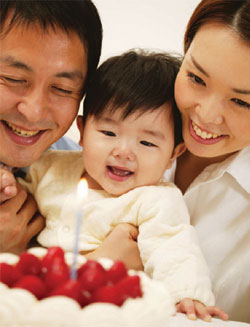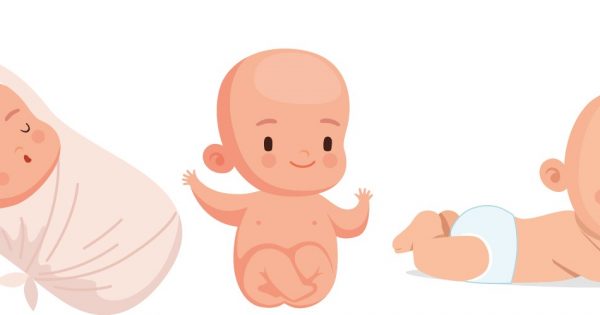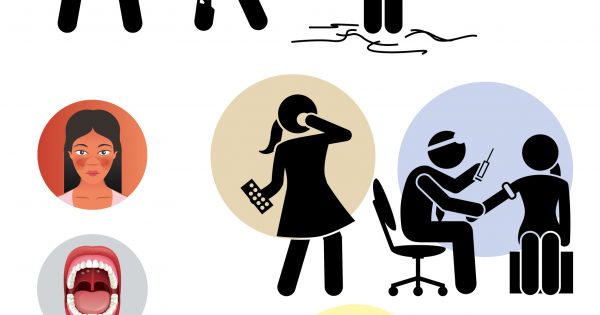Spend more time with your child and help her develop healthily
Congratulations! Your child has just turned one. Looking at her now, it would be difficult to imagine that just twelve months earlier she was a helpless baby who did nothing more than drink milk and sleep.
At one year, your child is now standing up holding on to an object for support and taking a few steps while placing a hand on a wall or furniture. This is known as cruising. Some children would already be able to walk without support, much to the joy of their parents. However, parents whose children are not walking yet, rest assured: it is normal for a child not to walk until the age of 18 months. However, do mention it to your paediatrician when you take your child for her immunisation so that she can be examined.
Fine motor
In terms of fine motor development, her hands are now more dexterous, and she is able to control the use of her fingers, thus enabling her to pick up small objects such as raisins, ants, small buttons, etc. Things still end up in her mouth and horrified mothers have been known to find beetles in their little ones’ mouths! On a more cautious note, this means that they are able to choke on small objects such as buttons, soft toys’ eyes and erasers, so it is important that these be kept out of their way. Soft toys should not have sew-on eyes as the little one may bite them off and accidentally swallow them, causing her to choke.
She is also now able to hold pencils and crayons in the palm of her hand and scribble indiscriminately. By fifteen months she is able to hold the pencil between her thumb and index finger and her scribbling then becomes finer.
Talk, talk, talk
Speech has progressed beyond babbling to a few single words such as “mama”, “ papa” and “nak”, interspersed with lots of unintelligible words, spoken with passion and differing intonation. This is known as jargon speech . She is able to understand more words, notably “no”, “come”, “nak”, and other words often used by her parents when speaking to her. She can often point to a few body parts by the time she is 15 months. She maintains good eye contact during communication and is a keen student, picking up your hand and body movements. Children who do not have good eye contact or who are not speaking at this stage need to be assessed by a paediatrician.
As a one-year-old, your child continues to be wary of strangers. A meeting with someone she is not familiar with will see her clinging to her parents, and she will rarely approach or respond to strangers. This is normal behaviour, and while we would like to expose our children to the Eastern values of salam and greetings, it should not be forced onto her. If your child does not wish to greet or salam someone, let it pass and try again another day. Forcing the issue will only lead to tantrums and more clingy behaviour.
Ways of Enhancing Your Child’s Development
Today, parents are swamped with advertisements of products claiming to enhance their child’s capabilities. However, nothing beats a parent’s attention. Your child looks to you as a parent for guidance. Her development progresses as a result of love, attention and encouragement from her family. Speech for example is dependent upon interaction between the child and her caregivers. Therefore, do not feel guilty if your child does not possess all the toys labelled as ‘educational’. You are her best toy and educational tool.







Comments